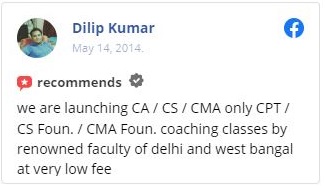D. Pharma (Diploma in Pharmacy) Admission from Top Best Universities: Admission Process, Eligibility Criteria, Scope,Duration, Syllabus, and Career Opportunities.
D. Pharma (Diploma in Pharmacy) Admission: Overview
D. Pharma (Diploma in Pharmacy) Admission: Overview
D. Pharma, or Diploma in Pharmacy, is a popular course for students aspiring to build a career in the pharmaceutical field. This two-year program equips students with the essential knowledge and skills required for various roles in healthcare, including pharmacy practice, patient care, and pharmaceutical manufacturing.
- D. Pharma Eligibility Criteria: To enroll in a D. Pharma program, candidates typically need to have completed their 10+2 education with science subjects, including Physics, Chemistry, and Biology or Mathematics. The minimum age requirement is usually 17 years.
- D. Pharma Admission Process: Admissions can vary by institution but often involve entrance exams or merit-based selection from the qualifying examination. Some colleges also conduct interviews or counseling sessions to evaluate candidates further.
- D. Pharma Course Curriculum: The D. Pharma curriculum includes subjects such as Pharmaceutical Chemistry, Pharmacology, and Clinical Pharmacy. Practical training is also a crucial component, providing hands-on experience in various pharmacy settings.
- D. Pharma Career Opportunities: Graduates of D. Pharma can pursue diverse career paths, including roles as pharmacists in retail pharmacies, hospitals, or pharmaceutical companies. Further studies, such as a Bachelor’s in Pharmacy (B. Pharma), can also enhance career prospects.
D. Pharma is an excellent choice for students looking to enter the dynamic field of pharmacy, offering a blend of theoretical knowledge and practical skills essential for success in healthcare.
D. Pharma (Diploma in Pharmacy): Eligibility Criteria
The Diploma in Pharmacy (D. Pharma) is an essential stepping stone for individuals looking to enter the pharmaceutical field. To ensure that aspiring students meet the necessary standards, several eligibility criteria must be fulfilled.
- Educational Qualification: Candidates should have completed their 10+2 education from a recognized board. It is crucial to have studied Science subjects, specifically Physics, Chemistry, and either Biology or Mathematics. A minimum percentage requirement (often around 50%) may also apply.
- Age Limit: Typically, applicants must be at least 17 years old by the time of admission. Some institutions may have specific age criteria, so it’s advisable to check with the relevant college.
- Entrance Exams: While some colleges admit students based on merit from the 10+2 examination, others may conduct entrance tests. Performance in these exams can significantly influence admission chances.
- Domicile Requirements: Certain institutions may have specific domicile requirements for local students. This could include residency proofs or certificates.
- Health and Fitness: Some colleges may require candidates to submit a medical fitness certificate, ensuring they are physically capable of handling the demands of the course.
In summary, fulfilling these eligibility criteria is crucial for a successful admission into the D. Pharma program. Prospective students should ensure they meet all requirements to pursue a rewarding career in pharmacy.
D. Pharma (Diploma in Pharmacy) Admission Process from Top Universities
The admission process for the Diploma in Pharmacy (D. Pharma) program varies among universities, but there are common steps that most institutions follow. Here’s an overview of the typical admission procedure for top universities:
- Research and Selection: Prospective students should begin by researching universities that offer D. Pharma programs. Factors to consider include accreditation, faculty qualifications, infrastructure, and placement opportunities.
- Application Form: Interested candidates need to fill out the application form for their chosen universities. This can often be done online through the university’s official website. It’s essential to provide accurate personal and educational details.
- Entrance Exams: Some universities require candidates to appear for an entrance examination, which assesses their knowledge in subjects like physics, chemistry, and biology. The scores from these exams play a significant role in the selection process.
- Merit List: Based on entrance exam scores and/or 10+2 marks, universities will release a merit list. Candidates are ranked according to their performance.
- Counseling and Interview: Shortlisted candidates may be called for a counseling session or an interview. This step allows the university to evaluate the candidates further and provide guidance on course selection.
- Document Verification: Once selected, candidates must submit necessary documents, including academic certificates, identity proof, and photographs, for verification.
- Admission Fee Payment: Finally, candidates need to pay the admission fee to secure their seat in the program.
- Commencement of Classes: After completing all formalities, students will receive information regarding the commencement of classes and orientation programs.
D. Pharma (Diploma in Pharmacy): Curriculum
First Year
1st Semester:
- Pharmaceutical Chemistry: Basic principles of chemistry applied to pharmaceuticals, including organic and inorganic compounds.
- Pharmaceutics: Introduction to the formulation and preparation of various pharmaceutical dosage forms.
- Biochemistry: Study of biochemical processes in the human body.
- Human Anatomy and Physiology: Overview of human body systems, their functions, and structure.
- Communication Skills: Development of effective communication skills, essential for patient interaction.
2nd Semester:
- Pharmacognosy: Study of medicinal plants and natural products used in pharmacy.
- Pharmacology: Introduction to drug action, effects, and therapeutic uses.
- Pharmaceutical Jurisprudence: Understanding legal and ethical aspects of pharmacy practice.
- Drug Store Management: Basics of managing a pharmacy, including inventory and customer service.
- Practical Lab Sessions: Hands-on experience in formulation and analysis of drugs.
Second Year
3rd Semester:
- Pharmaceutical Microbiology: Study of microorganisms related to pharmacy and their control in pharmaceuticals.
- Clinical Pharmacy: Introduction to patient care, medication management, and therapeutic drug monitoring.
- Pathophysiology: Understanding diseases and their impact on the human body.
- Community Pharmacy: Focus on pharmacy practice in community settings and public health.
- Practical Lab Sessions: Continuing hands-on training in compounding and dispensing medications.
4th Semester:
- Biostatistics: Basic statistical methods used in pharmacy research and data analysis.
- Quality Assurance and Quality Control: Principles and practices to ensure drug quality and safety.
- Research Methodology: Introduction to research processes in pharmaceutical sciences.
- Project Work: A research project that allows students to apply their knowledge in a practical context.
- Internship: Hands-on experience in a pharmacy setting, integrating theoretical knowledge with real-world practice.
D. Pharma (Diploma in Pharmacy): Fees and Duration
The Diploma in Pharmacy (D. Pharma) program is an essential qualification for those pursuing a career in the pharmaceutical industry. Understanding the fees and duration of the course is crucial for prospective students.
- D. Pharma Duration: The D. Pharma program typically spans two years, divided into four semesters. Each semester covers various subjects, including pharmaceutical chemistry, pharmacology, and clinical pharmacy, along with practical training. This structured approach ensures that students gain both theoretical knowledge and hands-on experience.
- D. Pharma Fees: The fee structure for D. Pharma can vary significantly depending on the institution, location, and facilities provided. On average, the annual tuition fees range from₹30,000 to₹1,50,000. Here’s a breakdown of potential costs:
- Tuition Fees: Generally between ₹25,000 and ₹1,00,000 per year.
- Additional Costs: This may include laboratory fees, library charges, and other miscellaneous expenses, which can range from ₹5,000 to ₹20,000.
- Hostel Fees: For students opting for on-campus accommodation, hostel fees can vary from ₹10,000 to ₹50,000 per year, depending on the type of accommodation.
- Other Expenses: Students should also budget for books, study materials, and personal expenses.
In summary, the D. Pharma program, with a duration of two years and varying fees, offers an accessible pathway for students aiming to establish a career in pharmacy. It’s advisable for candidates to explore specific institutions for detailed fee structures and financial assistance options. c
D. Pharma (Diploma in Pharmacy): Scope and Career Opportunities
The Diploma in Pharmacy (D. Pharma) opens up a wide range of career opportunities in the ever-evolving pharmaceutical industry. As healthcare continues to grow, the demand for skilled pharmacy professionals is on the rise.
Scope of D. Pharma:
Foundational Knowledge: D. Pharma provides essential knowledge of drug formulation, pharmacology, and patient care, equipping graduates to understand and participate in healthcare solutions.
Diverse work environments: Graduates can work in various settings, including retail pharmacies, hospitals, pharmaceutical companies, and research organizations.
Regulatory and Compliance Roles: With a solid understanding of pharmacy laws and regulations, D. Pharma holders can pursue careers in compliance and regulatory affairs within the pharmaceutical industry.
D. Pharma Career Opportunities:
Retail pharmacist: Work in community pharmacies, dispensing medications and advising patients on proper usage.
Hospital pharmacist: Collaborate with healthcare professionals to provide optimal medication management and patient care in hospital settings.
Pharmaceutical Sales Representative: Engage with healthcare providers to promote pharmaceutical products and provide essential information.
Quality Control/Assurance: Ensure that pharmaceutical products meet required standards and regulations in manufacturing companies.
Clinical Research Associate: Participate in clinical trials and research studies, helping to assess the efficacy and safety of new medications.
Further Studies: Graduates can pursue higher education, such as a Bachelor of Pharmacy (B. Pharma) or specialized courses in clinical pharmacy, further enhancing their career prospects.
In conclusion, the D. Pharma program offers a robust foundation for a rewarding career in the pharmaceutical sector, with diverse opportunities for growth and specialization in various fields.






























